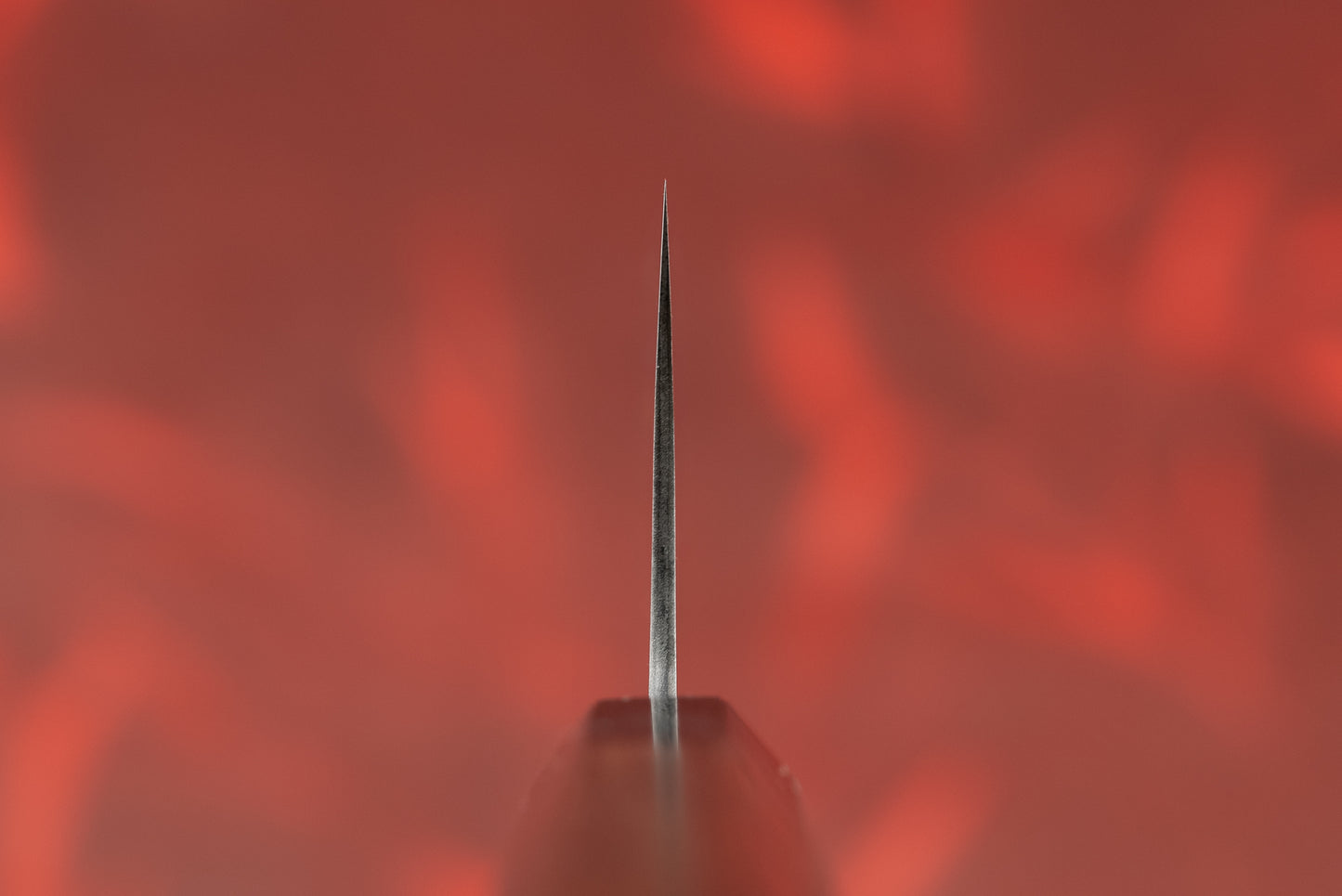Toshihiro Wakui Shirogami Stainless Migaki Santoku 165mm
Toshihiro Wakui Shirogami Stainless Migaki Santoku 165mm
About Wakui-san - Toshihiro Wakui-san is a third-generation maker of hand-forged crowbars who pivoted his business to knife making when hand-made crowbars went out of fashion. He mastered the art in four short years apprenticing under Kazuomi Yamamoto of Yoshikane and got to work making his own knives. Working completely solo in a rather chaotic workshop a la Doc Brown, he produces gorgeous blades with excellent fit and finish.
This Migaki series features a thick spine with a gorgeous taper, allowing the knife to be both razor-sharp and fairly durable for a Japanese blade. The shirogami #2 steel core is capable of legendary sharpness, and an outer layer of stainless steel makes them easier to maintain. Combine that with an octagon rosewood handle, and you've got one stunning blade!
About the Shape -This is also a multi-purpose knife, but with a slight vegetable bias. Santoku means 'Three Virtues' or 'To solve Three Problems'. The virtues or problems are slicing, dicing and mincing. Santoku is usually found in 160mm - 190mm lengths. These are more and more popular in Western kitchens due to their unique shape and smaller easy-to-handle size.
| Shape | Santoku |
|---|---|
| Blade Length | | |
| Blade Height | |
| Blade Thickness Above Heel | |
| Weight | |
| Steel Type |
Rust Prone ⓘ
This knife can rust, click to learn more.
|
| Rockwell Hardness | 62 - 63 |
| Edge/Bevel | |
| Handle | Wa (Japanese) Handle - Octagon Rosewood Water Buffalo Horn Collar |
| Blacksmith | Toshihiro Wakui |
| Made in | Sanjo, Niigata, Japan |
A note about measurements: Handmade Japanese knives can vary in their dimensions, so these measurements are only an example.
Knife Care
Knife Care
Shipping and Returns
Shipping and Returns
We aim to ship your order within 1 business day at Knifewear, if there is a hold up, we'll aim to let you know and give you a timeline.
We offer $3 shipping on orders over $100* anywhere in Canada and $200* to customers in the USA. We ship worldwide, and offer up to the minute rates from our shipping partner DHL.
*Konro Grills and some other larger items are excluded from the free shipping offer.
How do I make a return on an online order?
No worries, we've got you sorted. Head over to https://knifewear.com/returns and follow the prompts.
Can I pick up my order Curbside / At the store?
Absolutely, as long as all the items you are looking for are in stock at the location you want to pickup from, you'll be able to select that at the checkout. If one or more items aren't at your preferred location we are happy to ship it to you.
Request Additional Info
Request Additional Info






